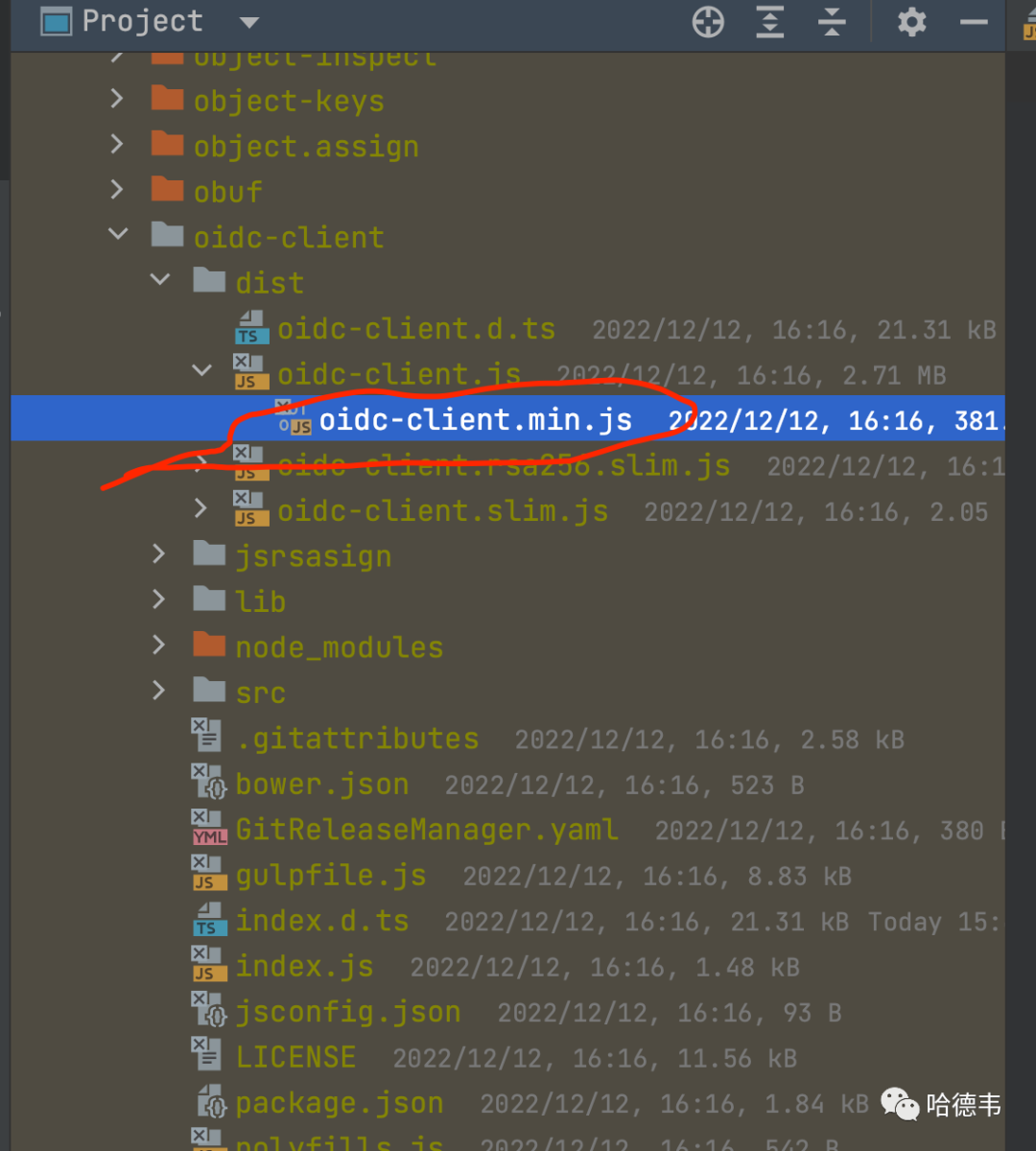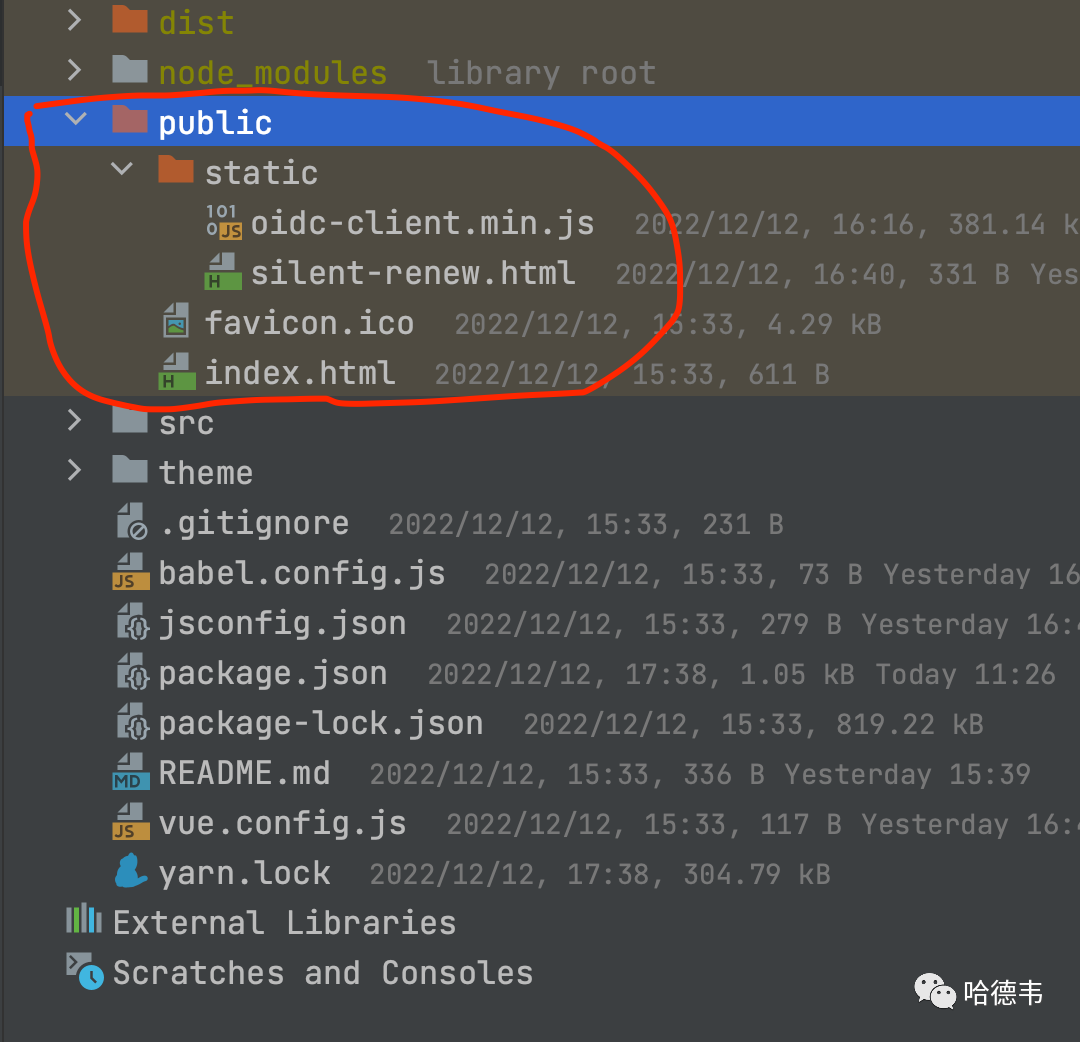使用 IdentityServer 保护 Vue 前端
前情提要
《使用 IdentityServer 保护 Web 应用(AntD Pro 前端 + SpringBoot 后端)》中记录了使用 IdentityServer 保护前后端的过程,其中的前端工程是以 UMI Js 为例。今天,再来记录一下使用 IdentityServer 保护 Vue 前端的过程,和 UMI Js 项目使用 umi plugin 的方式不同,本文没有使用 Vue 相关的插件,而是直接使用了 oidc-client js。
另外,我对 Vue 这个框架非常不熟,在 vue-router 这里稍微卡住了一段时间,后来瞎试居然又成功了。针对这个问题,我还去 StackOverflow 上问了,但并没有收到有效的回复:https://stackoverflow.com/questions/74769607/how-to-access-vues-methods-from-navigation-guard
准备工作
首先,需要在 IdentityServer 服务器端注册该 Vue 前端应用,仍然以代码写死这个客户端为例:
new Client{ClientId = "vue-client",ClientSecrets = { new Secret("vue-client".Sha256()) },ClientName = "vue client",AllowedGrantTypes = GrantTypes.Implicit,AllowAccessTokensViaBrowser = true,RequireClientSecret = false,RequirePkce = true,RedirectUris ={://localhost:8080/callback",://localhost:8080/static/silent-renew.html",},AllowedCorsOrigins = { "http://localhost:8080" },AllowedScopes = { "openid", "profile", "email" },AllowOfflineAccess = true,AccessTokenLifetime = 90,AbsoluteRefreshTokenLifetime = 0,RefreshTokenUsage = TokenUsage.OneTimeOnly,RefreshTokenExpiration = TokenExpiration.Sliding,UpdateAccessTokenClaimsOnRefresh = true,RequireConsent = false,};
在 Vue 工程里安装 oidc-client
yarn add oidc-client在 Vue 里配置 IdentityServer 服务器信息
在项目里添加一个 src/security/security.js文件:
import Oidc from 'oidc-client'function getIdPUrl() {return "https://id6.azurewebsites.net";}Oidc.Log.logger = console;Oidc.Log.level = Oidc.Log.DEBUG;const mgr = new Oidc.UserManager({authority: getIdPUrl(),client_id: 'vue-client',redirect_uri: window.location.origin + '/callback',response_type: 'id_token token',scope: 'openid profile email',post_logout_redirect_uri: window.location.origin + '/logout',userStore: new Oidc.WebStorageStateStore({store: window.localStorage}),automaticSilentRenew: true,silent_redirect_uri: window.location.origin + '/silent-renew.html',accessTokenExpiringNotificationTime: 10,})export default mgr
在 main.js 里注入登录相关的数据和方法
数据
不借助任何状态管理包,直接将相关的数据添加到 Vue 的 app 对象上:
import mgr from "@/security/security";const globalData = {isAuthenticated: false,user: '',mgr: mgr}
方法
const globalMethods = {async authenticate(returnPath) {console.log('authenticate')const user = await this.$root.getUser();if (user) {this.isAuthenticated = true;this.user = user} else {await this.$root.signIn(returnPath)}},async getUser() {try {return await this.mgr.getUser();} catch (err) {console.error(err);}},signIn(returnPath) {returnPath ? this.mgr.signinRedirect({state: returnPath}) : this.mgr.signinRedirect();}}
修改 Vue 的实例化代码
new Vue({router,data: globalData,methods: globalMethods,render: h => h(App),}).$mount('#app')
修改 router
在 src/router/index.js中,给需要登录的路由添加 meta 字段:
Vue.use(VueRouter)const router = new VueRouter({{path: '/private',name: 'private page',component: resolve => require(['@/pages/private.vue'], resolve),meta: {requiresAuth: true}}});export default router
接着,正如在配置中体现出来的,需要一个回调页面来接收登录后的授权信息,这可以通过添加一个 src/views/CallbackPage.vue 文件来实现:
<template><div><p>Sign-in in progress... 正在登录中……</p></div></template><script>export default {async created() {try {const result = await this.$root.mgr.signinRedirectCallback();const returnUrl = result.state ?? '/';await this.$router.push({path: returnUrl})}catch(e){await this.$router.push({name: 'Unauthorized'})}}}</script>
然后,需要在路由里配置好这个回调页面:
import CallbackPage from "@/views/CallbackPage.vue";Vue.use(VueRouter)const router = new VueRouter({routes: {path: '/private',name: 'private page',component: resolve => require(['@/pages/private.vue'], resolve),meta: {requiresAuth: true}},{path: '/callback',name: 'callback',component: CallbackPage}});export default router
同时,在这个 router 里添加一个所谓的“全局前置守卫”(https://router.vuejs.org/zh/guide/advanced/navigation-guards.html#%E5%85%A8%E5%B1%80%E5%89%8D%E7%BD%AE%E5%AE%88%E5%8D%AB),注意就是这里,我碰到了问题,并且在 StackOverflow 上提了这个问题。在需要调用前面定义的认证方法时,不能使用 router.app.authenticate,而要使用 router.apps[1].authenticate,这是我通过 inspect router发现的:
...router.beforeEach(async function (to, from, next) {let app = router.app.$data || {isAuthenticated: false}if(app.isAuthenticated) {next()} else if (to.matched.some(record => record.meta.requiresAuth)) {router.apps[1].authenticate(to.path).then(()=>{next()})}else {next()}})export default router
到了这一步,应用就可以跑起来了,在访问 /private 时,浏览器会跳转到 IdentityServer 服务器的登录页面,在登录完成后再跳转回来。
添加 silent-renew.html
注意 security.js,我们启用了 automaticSilentRenew,并且配置了 silent_redirect_uri的路径为 silent-renew.html。它是一个独立的引用了 oidc-client js 的 html 文件,不依赖 Vue,这样方便移植到任何前端项目。
oidc-client.min.js
首先,将我们安装好的 oidc-client 包下的 node_modules/oidc-client/dist/oidc-client.min.js文件,复制粘贴到 public/static目录下。

然后,在这个目录下添加 public/static/silent-renew.html文件。

<html><head><title>Silent Renew Token</title></head><body><script src='oidc-client.min.js'></script><script>console.log('renewing tokens');new Oidc.UserManager({userStore: new Oidc.WebStorageStateStore({ store: window.localStorage })}).signinSilentCallback();</script></body></html>
给 API 请求添加认证头
最后,给 API 请求添加上认证头。前提是,后端接口也使用同样的 IdentityServer 来保护(如果是 SpringBoot 项目,可以参考《[使用 IdentityServer 保护 Web 应用(AntD Pro 前端 + SpringBoot 后端) - Jeff Tian的文章 - 知乎](https://zhuanlan.zhihu.com/p/533197284) 》);否则,如果 API 是公开的,就不需要这一步了。
对于使用 axios 的 API 客户端,可以利用其 request interceptors,来统一添加这个认证头,比如:
import router from '../router'import Vue from "vue";const v = new Vue({router})const service = axios.create({// 公共接口--这里注意后面会讲baseURL: process.env.BASE_API,// 超时时间 单位是ms,这里设置了3s的超时时间timeout: 20 * 1000});service.interceptors.request.use(config => {const user = v.$root.user;if(user) {const authToken = user.access_token;if(authToken){config.headers.Authorization = `Bearer ${authToken}`;}}return config;}, Promise.reject)export default service
